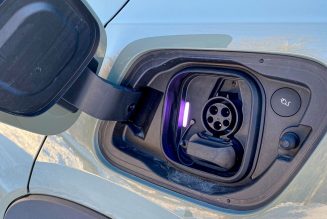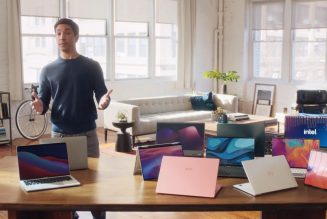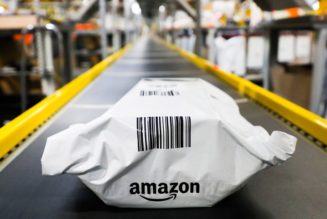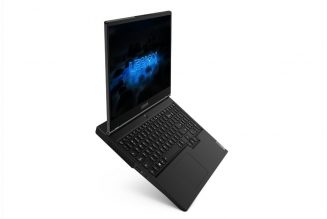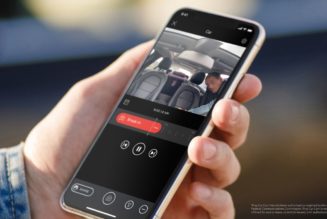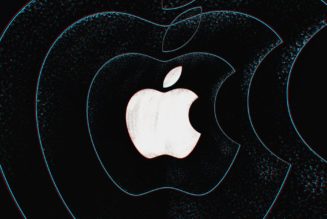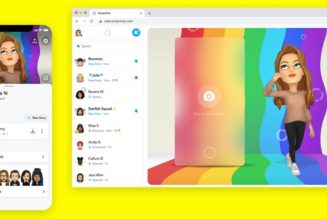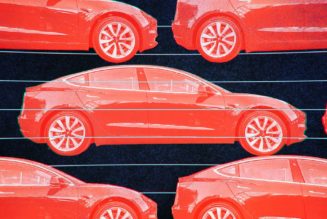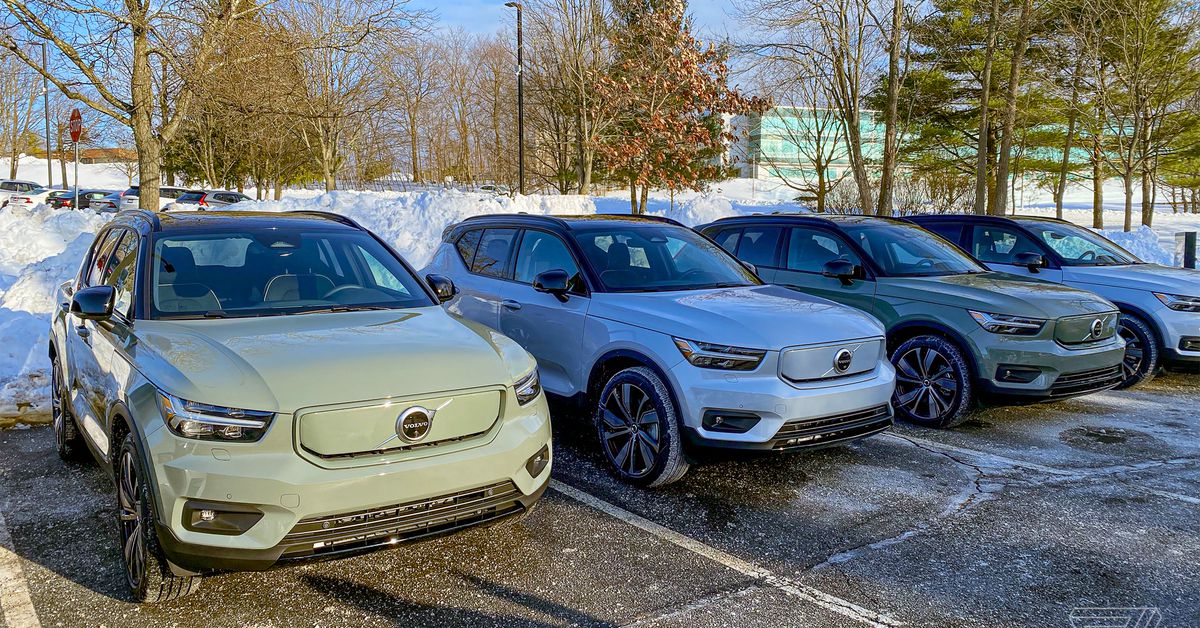
Volvo XC40 Recharge electric SUVs are currently being held at US ports because the company is waiting to ship a crucial software update before releasing them to customers and dealers, The Verge has learned.
The problem appears to be that these XC40 Recharge SUVs — which is Volvo’s first all-electric vehicle — left the company’s factory without the Volvo On Call software activated. Volvo On Call is a subscription service that connects Volvo cars to an owner’s smartphone, allowing them to remotely turn the vehicle on and off, lock or unlock the doors, and access diagnostic information.
One customer, who was supposed to take delivery of his XC40 Recharge at the end of February, tells The Verge his dealer’s best guess is that his SUV may not make it out of the port in Newark, New Jersey until mid-April.
“[Y]our Recharge has arrived at Port Newark. However, at this time delivery of your XC40 Recharge will be delayed due to the Volvo On Call system not yet being functional due to a software issue,” reads one email from Volvo’s corporate customer service sent in mid-February and viewed by The Verge. “We are awaiting word from Volvo Sweden on final updates for the cars in the ports.”
It’s unclear how many XC40 Recharge SUVs are currently stuck waiting for the software fix. But customers on Volvo forums have shared similar messages and reported cars stuck on ships in New York, Maryland, and California. Some buyers, especially in Europe, have reported taking delivery of the vehicle, which started rolling off Volvo’s production line late last year.
Russell Datz, Volvo’s national media relations manager for the US market, did not respond to specific questions about the apparent delay and software issue. “The timing of U.S. customer deliveries of XC40 Recharge has not changed from the original schedule of Q1 2021,” he wrote in an email.
Just last week, Volvo issued the first over-the-air software update for existing XC40 customers that included a “new base software for the car’s main electronics systems, an increase in charging speed, and an improved driving range,” as well as an unspecified “important safety-related propulsion bug fix.” Datz declined to say whether this is related to Volvo On Call not working on the XC40 SUVs currently stuck in ports.
“[A] new Volvo is no longer at its finest when it leaves the factory, but keeps improving over time as additional OTA updates are launched,” the company wrote in the press release.
Volvo’s far from the first automaker to run into issues with its first mass-market electric vehicle, let alone problems with software. Volkswagen’s first mass-production EV, the ID 3, was delayed in 2020 and then eventually released with incomplete software. Other automakers have run into far more serious problems, like General Motors and Hyundai, which have recently been reckoning with reports of fires in the battery packs of their EVs.


